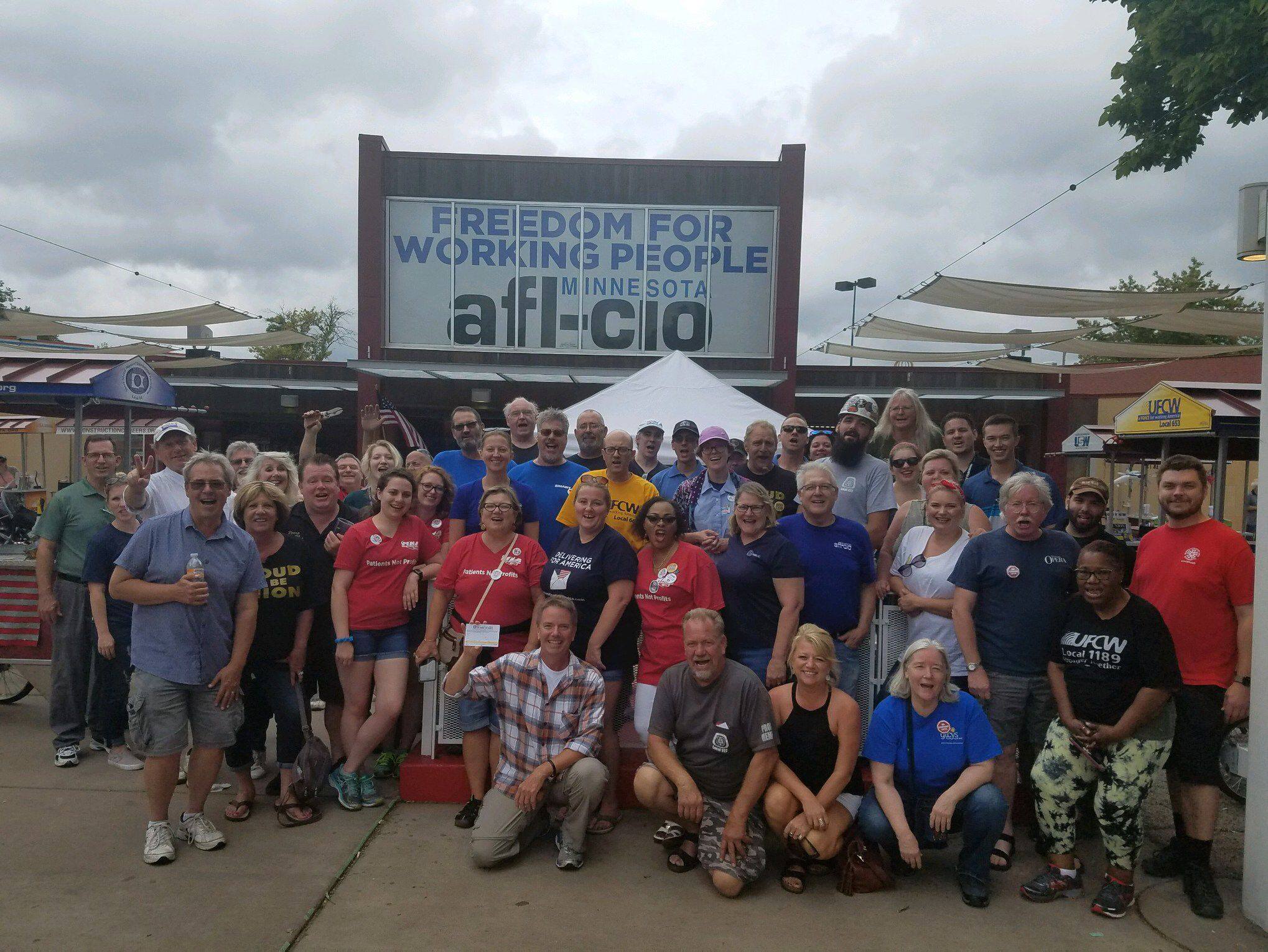
As the midterms rapidly approach, politics is at the top of minds across the labor movement. And as a seemingly endless stream of news flows from the White House, Capitol Hill and the campaign trail, it can be easy to lose sight of anything else. But organizers have been quick to point out that our electoral strength in November depends on our organizing strength year-round.
Minnesota AFL-CIO Organizing/Growth Director Todd Dahlstrom says it’s never been more important to focus on bolstering membership.
"If we do the internal organizing first, the politics will follow. And for a long time, I think that we've been trying to do the politics and then the organizing," Dahlstrom said. "We need to build a strong union affinity on the front end before we really can start talking about politics."
He says the key lies in having conversations on the shop floor about kitchen table economics—the critical issues facing workers every day, like wages, health care and retirement security. To that end, the Minnesota AFL-CIO has worked with locals across the state to revamp their worksite organizing programs and try experimental new strategies.
"One thing that's unique to unions that most other organizations don't have—we have worksites," Dahlstrom said. "We have access to worksites. We have access to workers. We just need to go talk to those workers."
When Bakery, Confectionery, Tobacco Workers and Grain Millers (BCTGM) Local 22 faced a contract fight with a bakery in St. Cloud, local organizers tapped into a prime opportunity to build solidarity. Bonded by a common struggle, members started showing up to unit meetings in droves and began feeling invested in their union. They ultimately won the fight, coming out of that victory stronger than ever.
Meanwhile, the Twin Cities public workers of Laborers (LIUNA) Local 363 were grappling with the new challenges posed by the Supreme Court’s union-busting decision in Janus v. AFSCME. Tasked with collecting hundreds of recommitment cards, the local's leadership turned to its members to mobilize.
Forming a 10-person organizing committee, shop stewards from across the local took the lead. They set goals, engaged their union brothers and sisters and learned from each other as they debriefed each week.
"I was really intimidated at first," said Caitlin Brunette, a Local 363 member and steward in the Saint Paul Parks & Recreation Department. "But going to these meetings every week really helped me, because I got to ask other people what they were saying—what was effective, what was working."
Over the course of 10 weeks, they steadily built a mountain of signed cards, including 85 from former fee-payers.
Asked how other locals might find similar success, Brunette encouraged stewards to form a member-led organizing committee—and to stay committed.
"That was essential," said Brunette, herself a single mom who has never missed a meeting. "Meet every week. Stay consistent. Make it a top priority of yours."
For his part, Dahlstrom urged union leaders to focus on the fundamentals.
"We just gotta get back to what we're good at," he said. "We are good at talking to workers at the worksites and finding issues that workers will rally around. And we just need to get back to doing that—having those shop floor discussions and finding out what workers really want to fight for and then picking those fights."

